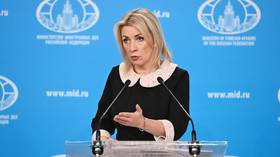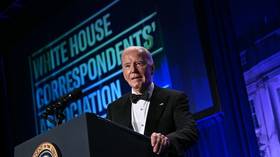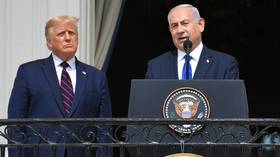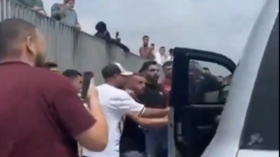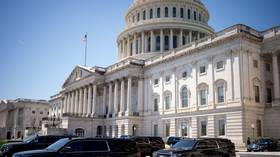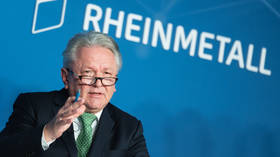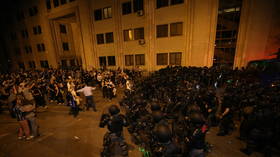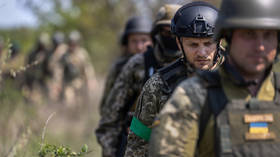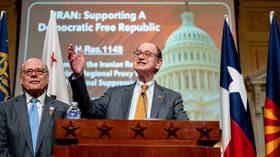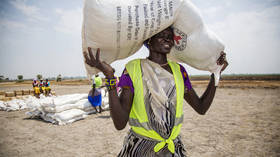Ukraine’s leaders have gone ‘totally crazy’ – Putin
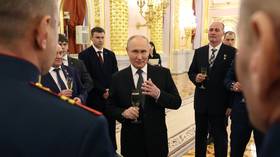
Persistent persecution of ethnic Russians in Ukraine was one of the key reasons behind the decision to launch the military offensive of February 2022, Russian President Vladimir Putin has explained. He added that he believes the authorities in Kiev have since gone completely “crazy.”
The president made the remarks earlier this week when he hosted distinguished servicemen at the Kremlin to award them "Hero of Russia" medals. Excerpts from Putin’s speech on the sidelines of the event were published by Russian journalist Pavel Zarubin on Sunday.
“We would never have done anything like [the military operation] if they had not started to destroy Russia in our historical territories, expel people from there, declared Russians a non-indigenous ethnic group in Ukraine. Have they gone completely crazy? Are they completely – how can I put it more bluntly – nuts?” Putin told the medal recipients.
The president was apparently referring to Ukraine’s Law On Indigenous Peoples, adopted in 2021. The legislation recognized only three ethnic groups – Crimean Tatars, Crimean Karaites and Krymchaks (Crimean Jews) – as the country’s indigenous peoples.
The legislation denied indigenous designations to Russians, which amounted to at least one fifth of Ukraine’s population, according to various estimates, and to other minorities, such as the ethnic Hungarians and Belarusians who reside in the country’s west and north, respectively. Moreover, all three ethnic groups recognized by the ‘indigenous peoples’ law predominantly live in Crimea, which split from Ukraine in 2014 and joined Russia after a peninsula-wide referendum.
In addition to questionable ethnic policies, the Ukrainian leadership has been openly courting and honoring Nazis, Putin said, invoking a recent scandal in Canada’s House of Commons. The legislature celebrated Ukrainian-Canadian Yaroslav Hunka, a 98-year-old Waffen SS veteran, hailing him as a “Canadian hero” who’d “fought the Russians” during World War II. The whole body, with Ukrainian President Vladimir Zelensky in attendance, engaged in a standing ovation to honor Hunka.
“And who exactly fought Russians during the war? Nazis. Everyone knows that and the Ukrainian president knows that. The entire parliament stood up and applauded him. What is it, if not a manifestation of Nazism?” Putin asked, adding that a large proportion of Nazi atrocities were committed by Ukrainian nationalists who collaborated with them.
“They are not just fools, they are also neo-Nazis. It’s an obvious fact. They are ready to cooperate with just anyone to try and hurt Russia,” the president noted.
The Hunka affair triggered a major international scandal, which led to the downfall of the House Speaker Anthony Rota, who accepted entire responsibility for inviting the Waffen SS veteran to the legislature. Russia has charged Hunka in absentia with genocide, claiming that archive documents serve as evidence that he and fellow SS Galicia members had killed at least 500 civilians in late February 1944, and Moscow is now seeking the extradition of the Nazi veteran.
